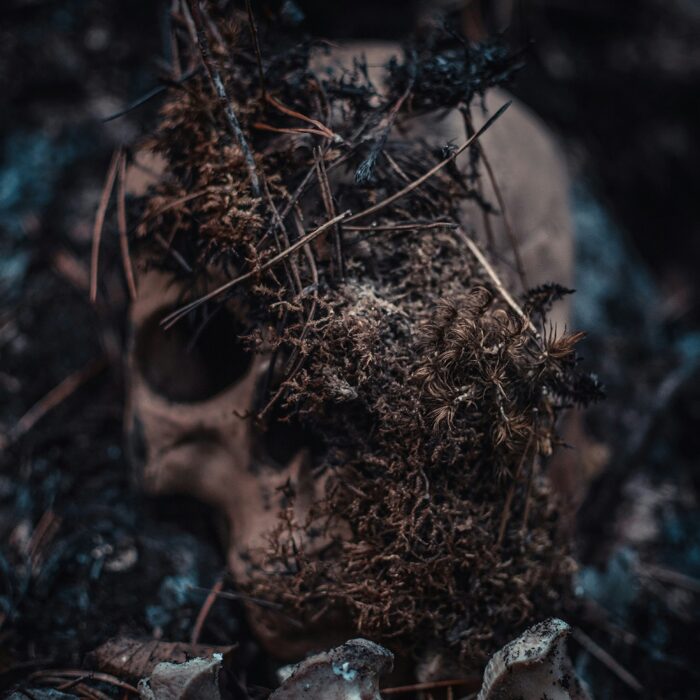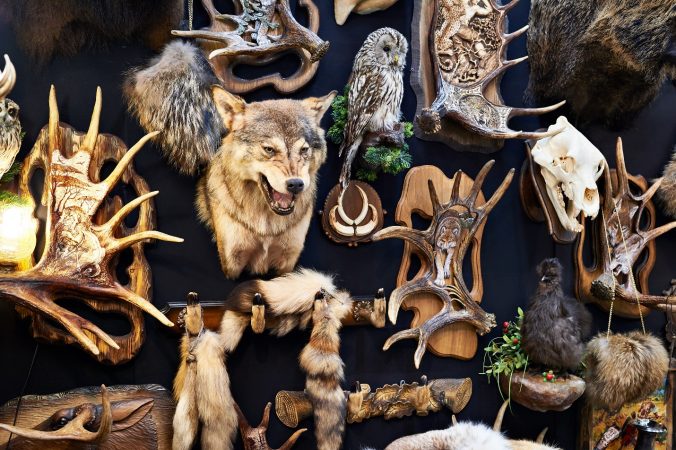You have no items in your cart. Want to get some nice things?
Go shopping
I was born during a lightning storm, July 4, 1968, and the power went out with my first gasp of air. At least that’s the story my mother used to tell. She said I was a dark wiggling thing and that for my first three days, I barely made a sound. I nursed easily, slept peacefully, so she named me after a saint, but my father called me Worm. “Because you’re slippery,” he explained later, in a tone that suggested slipperiness was a permanent condition. My mother shot him a warning look.
To me, she was the saint, though her name was Linda. She had light brown hair and often wore it in a bun. I always wanted her to let it down, but when she did, I found myself disappointed. The extra hair on her shoulders was like a fringe on shorts. I would climb on her back and pull it. She had long fingers and played Mozart on piano, and I would crawl under the bench and poke her ankles until she played something I liked. The piano took up the better part of the den. She was only allowed to play when Dad was gone. He was a trucker, on the road for a week at a time, driving semis up and down the coast. The sound of his return, a clapping door in the driveway, always left me cold. He would stand on the welcome mat and tell me to untie his boots. He would laugh and say, “Smell them,” and I would. He was like me, a child, just bigger. He wore hats my mother had knitted to cover his balding scalp. He wore cotton shirts two sizes too big, because, he would say, they shrank. Around him I felt crowded. I occupied whatever room he did not. I closed the door against the sound of his TV that only played evening news and football.
In winter, a draft came through cracks in those rough wooden walls. A log cabin was what my father had in mind when he built the place, which turned out to be a perfect cube with a roof like a party hat. A structure like this you would only find in Marcha, the longest county I knew of. Marcha was essentially a flat strip of grass. One road, Route 8, ran from one end to the other, and off it was a fire station, a bank, a Rack & Sack supermarket, and Ms. Z’s Palm Readings, which was a purple shed with a sign out front that read: The Answers Are Within. Obviously this was the only place I ever wanted to go, but my mother, as saintly as she was, forbade it. She quoted Scripture, Deuteronomy, which was clear on the matter: no soothsayers, spiritists, witches, or wizards. She spat in the kitchen sink and said, “That’s no place for a boy like you.”
At school, I had two friends, Gina and Fred. Gina had bitten off nearly all of her fingernails. The rest of them she coloured with graphite. At age thirteen, she moved away, deep into the mountains where her father, she wrote me, learned to handle snakes at church. We exchanged two letters before our lack of romance became evident and even a little embarrassing, but she had been a real friend. Fred was a provisional one, a boy with whom I had nothing in common. He liked the arcade and saved an allowance to play pinball, which was something that made no sense to me. I couldn’t understand how you would spend money to play a game you couldn’t even touch. I would press my hands to the glass and dream about breaking it.
In those days, my peers were all about alcohol. It was the most exciting thing in their lives. Ms. Z said that drinking was a waste of time and brain cells. She said I would be better off napping. I got the impression that she was an alcoholic. She traced my palm lines with her old, slender fingers. She said, “Stick by me. You’ve got a little something,” and smiled and winked at the same time. She was about eighty, thin, with a thin face and eyes far apart like a fish. I rode the bus to her shed Tuesdays after school.
Ms. Z never wore a turban or flowing robes. Like everyone in Marcha, she wore XL sweats. She wore earrings that looked like pearls and were even misshapen like real ones. Hornets buzzed in her rafters, and paperbacks leaned on bolted metal shelves. Most of my time there was spent reading them. I learned that fictional women always had biting things to say. Ms. Z seemed to enjoy my company, but she rarely said anything.
From ages twelve to fourteen I spent a hundred Tuesdays with her, missing only for holidays, and we did not become friends. I never felt comfortable sharing my thoughts. But I unscrewed her airtight jars, and we shared crackers and lemonade from her minifridge.
Her customers came unannounced. Rarely did they schedule in advance. They would fidget nervously with their checkbooks and glance at me in the corner where I would be reading, my legs draped over the arm of a wobbly white lawn chair. Ms. Z would invite them into the back of the shed, which was closed off by a threadbare fabric. I think she felt safer with me around.
The only really odd thing about my afternoons with Ms. Z was being with a woman alone, especially once I turned fourteen. Though her age made her nearly asexual, her overall aspect was still feminine. I wondered if she had as many fantasies about me as I had about her. Sometimes she would shiver as if she’d read my mind. I didn’t have sex fantasies about her. I had fantasies about her having sex fantasies about me. My sexuality was like a machine, off until it was on, but that only happened at night.
*
When I was fifteen, I grew six inches and developed a hunch. My hair changed from blond to brown. I spent mornings in the bathroom, staring into a small mirror with a woven wicker frame. I noticed for the first time how my teeth overlapped, so I stopped smiling. I kept my bedroom door shut. Some nights my mother would sit on the edge of my bed and try to convince me to stay away from Ms. Z. My mother said she wanted me to get out of Marcha, didn’t want me stuck there like she was. She brushed my cheek and said, “Study hard, okay?”
I wanted to make some money. I needed a driver’s license and a car. I needed to stop being controlled by the bus driver. I asked Ms. Z to pay me, and she agreed that that was the natural progression of things. My first tasks were straightening up, sweeping corners, repainting the shed. She had arthritis so I rubbed ginger balm and cayenne on her knuckles and feet. I organized her daily vitamins. She began cutting me checks one small amount at a time, so that when I turned sixteen I had enough money to buy a ’65 Tempest but not enough to get taxed.
The car was two-door, peeling teal. The muffler had rusted through so you could always anticipate my arrival. Nothing was inconspicuous about that year of my life. I was constantly breaking down on the side of the road, sitting on the trunk, reading a paperback, and waiting for someone to drive by and pick me up.
Sometimes I drove to a different county just to see it. They all looked the same. Used-car lots, tire repair shops, dollar stores, gas stations, a few defunct churches; fields of grass or tree stumps or corn that was cut low in winter. Two counties over was a Greyhound station. I would park in front of it and study the schedule. Inside, ripping tickets, was a thin woman with black hair and a face like a bird: beady-eyed, implacable. Every time I went, she was there. It was as if she lived behind that counter. I wondered whether she had a husband or children. She must have been bored. She must have thought about death all the time.
*
On cold nights, I drove to a dance club thirty minutes away. It was a warehouse with high ceilings with huge cement beams and speakers. At the doorway they drew a big black X on my hand. Of course I never danced. I stood in the corner and watched the women. They had come from all over, were getting out all of their pent-up energy.
One girl I had seen before, in school, across the room in history class, but only now was I noticing her body, the physicality of it and the way it moved through space. She danced nervously, her shoulders raised as if to hide. Maybe she had detected she was being watched and was shy about it. She wore white clothes so her skin shone tan. She had long blonde hair that she curled occasionally, or clipped a bow into. I liked the bow.
I watched her for many nights. I watched her at school, in the hallways, across the lunchroom. In science class, she never raised her hand but took fastidious notes. She was not the brightest student, but not dumb, either, but not successful. She elicited my pity, which I confused with love. For a science project, I acquired her phone number and called. Her mother answered, said she wasn’t home. She never called back, and that made me panicked and excited.
Our first kiss was many things. The smell of her dinner, the taste of her spit, reviled and aroused me. I had driven her to the dark empty lot of a park with a playground and a dirt baseball field enclosed in a chain-link fence. None of the lamplights were on. My headlights diffused in the fog around us. I turned off the engine, reclined in my seat. She leaned over top of me, and we kissed for a while.
At some point she pulled out a flask. “Gin,” she said, and giggled.
I explained how I wanted to live and die without tasting a drop of alcohol. I said that I knew plenty of happy people who never drank, then lied, “I know people who have never even had beer.”
She looked hurt, embarrassed. She said, “I feel stupid.”
She asked if she could wear my shirt. She wanted to smell it. “I love your smell” was her reasoning. I felt guilty for rejecting her alcohol, so I told her, “Then I’ll have to wear yours.” She agreed. We pulled them off.
Her breasts were smooth and precious. I was so overwhelmed that I had to look away. I covered my eyes with her shirt. I pulled it over my head, could feel it stretching under my arms.
She put on mine, then lifted the collar to her nose and inhaled. I turned off my headlights, and we lost sight of each other in the dark.
*
On the drive home, I played a Doors cassette and wondered aloud about its meaning, but I could see she was thinking about us.
She was trying to read a road sign when she confessed, “I can’t see through all this smoke.” That was when we noticed the car was smoking.
I pulled over, got out, lifted the hood, had no idea what I was looking at. A black void of fields surrounded us. Nearby was a long gravel driveway with a farmhouse at the end of it. I told her, “Wait here,” and walked over that way.
The house was one-floor, brick. Its windows were dark and still and seemed to be watching in fear as I approached. I climbed the stoop, opened the storm door, knocked. A dog barked from inside. I waited, then knocked again, in a friendly way, song-like. The dog continued to bark, thinly, yipping. From inside I heard movement, footsteps coming slowly closer. The door cracked.
A man stood behind it, peering through with one eye.
He took in the type of person I was. Skinny, a teen, a boy; I wore my shirt untucked but with a collar. He opened the door wider. He was a fat man, I noticed, and very, very old. He had no hair and liver spots all over his face which was a big round oval. His shoulders were hunched. They consumed his neck so that his head was leaning forward. He squinted as if he could barely see me.
I explained to him the situation, asked if I could use his phone.
He asked, “Would you like to use my phone?”
I assumed his ears were full of wax. They were also hairy and large, the lobes as big as my thumbs. I gave a long nod, chin to chest, and he cast a suspicious eye over my shoulder, at the car down by the road where my date leaned against the door, her white figure half-lit by the headlights. At his ankles, the dog, a little cloudy thing, scrabbled to smell me.
Lurchingly, the old man turned, and I followed him into the house. It was cramped and smelled of dampness and something else. His dog sniffed my ankles.
At the end of the hall, the old man clicked on a dim hurricane lamp. The walls appeared, a peeling cream paper. The old man wore pyjamas, red flannels, and I wondered if he had been sleeping, whether I had woken him. On a small round end-table sat his rotary phone, which he picked up, and handed me.
I called home. My stomach tightened when my father answered.
I said, “I thought you were out of town.”
“I got back early.” His voice was thick with sleep.
“My car’s out here smoking,” I said.
“What are you calling me for?”
“I need a hitch.”
“It’s late,” he said. “Call a tow.”
“Send Mom then.”
“She’s sleeping.”
“She won’t mind.”
“We’ll see you in the morning.”
“Can’t you do me a favour? One time?”
My father snarled, “Worm.”
The buzz of silence filled my ear. I put the receiver to my shoulder, asked the old man for his phonebook.
He said, “Do you need the phonebook?”
I flipped to roadside assistance, told them what I knew, and when I hung up, the old man softened, his posture loosened.
I realised then that he had been tense. He had been afraid of me, a stranger. He asked if my date and I would like to wait inside, and I said that we would wait by the car. He parted his hands agreeably and turned to walk me to the door, which is when I pushed him.
He stumbled, and I kicked the back of his knees so he crumbled to the hardwood. He let out a stunned choke. That was the clearest moment of my life. He was weak, and old, and I had wanted to beat him and knew that I could.
His arm spasmed out, perhaps reaching for some leg of furniture or umbrella leaned up in the corner of the hall, anything to use as a weapon against me, but I marshalled the full force of my height and weight and brought it all down.
He lay there moaning while I rooted around for cash. The dog was barking, pawing at my body, but I registered it as the minor annoyance of a gnat buzzing at my ear. I found forty dollars in the drawer beneath the phone.
I clicked off his lamp, stepped over his crying body, then exited quietly through the front door. By the time I had reached my car, I was breathing more heavily than I ever had. My date kept asking what had happened, and if everything was okay. I told her a tow truck was coming.
I put my arm around her. Together we leaned against my car and waited. We began kicking gravel into the ditch. We made a game of seeing who could kick the gravel farthest.
I don’t know what Ms. Z had in mind when she read my palm and winked and said that I had a little something. I never went back to ask. At sunrise I caught a bus to the Greyhound station. I left the smoking car in my father’s backyard where, for all I know, it still sits now.
About CJ Green
CJ Green's stories have appeared in Prairie Schooner, Image, and Electric Literature.




